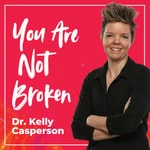Sex Advice for Seniors Podcast – Détails, épisodes et analyse
Détails du podcast
Informations techniques et générales issues du flux RSS du podcast.

Sex Advice for Seniors Podcast
Suzanne Noble
Fréquence : 1 épisode/7j. Total Éps: 155

www.sexadviceforseniors.com
Classements récents
Dernières positions dans les classements Apple Podcasts et Spotify.
Apple Podcasts
🇬🇧 Grande Bretagne - sexuality
31/07/2025#86🇬🇧 Grande Bretagne - sexuality
22/07/2025#79🇬🇧 Grande Bretagne - sexuality
18/07/2025#89🇬🇧 Grande Bretagne - sexuality
17/07/2025#66🇬🇧 Grande Bretagne - sexuality
16/07/2025#33🇬🇧 Grande Bretagne - sexuality
15/07/2025#22🇬🇧 Grande Bretagne - sexuality
14/07/2025#8🇬🇧 Grande Bretagne - sexuality
08/07/2025#96🇬🇧 Grande Bretagne - sexuality
07/07/2025#70🇬🇧 Grande Bretagne - sexuality
06/07/2025#49
Spotify
Aucun classement récent disponible
Liens partagés entre épisodes et podcasts
Liens présents dans les descriptions d'épisodes et autres podcasts les utilisant également.
See all- https://www.joinmidi.com/
194 partages
- https://myfirmtech.com/
55 partages
- https://www.instagram.com/s_xualalchemy
202 partages
- https://www.instagram.com/cindygallop
32 partages
- https://www.instagram.com/myfirmtech
19 partages
- https://www.facebook.com/rebecca.lowrie1
200 partages
- https://www.facebook.com/Intimacymatters
7 partages
Qualité et score du flux RSS
Évaluation technique de la qualité et de la structure du flux RSS.
See allScore global : 53%
Historique des publications
Répartition mensuelle des publications d'épisodes au fil des années.
Episode 102: Breast Cancer, Menopause & Sex
mercredi 28 août 2024 • Durée 34:14
Darlaine Honey is a Sexual Health Advisor working with Berkshire Healthcare and lives in Surrey, South of England. Having been diagnosed with lobular breast cancer, she is also an advocate for Breast Cancer Now on the workflow task force plus Breast Cancer Now / Ann Summers/My ViV collaboration for sex after breast cancer.
During the COVID lockdown, Darlaine and some friends formed the charity Lobular Breast Cancer so that other women could learn more about it.
As is evident from our discussion and from previous discussions I’ve had with those working in the area of sexual health, both in the UK and in the US, there’s not enough being done to support older people to have a healthier and happier sex life.
There’s an assumption that sexual health advisors are there to support younger people. At the same time, the stats reveal that more older people are presenting with STDs than ever before, thanks to escalating divorce rates and the opportunity through dating apps and elsewhere for sexual encounters.
I also learned, towards the end of our conversation, of the impact of drugs used to treat breast cancer on women’s sexual health and was shocked to discover how they may contribute to vaginal atrophy and a significant decline in libido and sensitivity, none of which patients are commonly told when undergoing treatment.
My friend Sam Evans, who runs a sex toy shop called Jo Divine, has spoken via her social media channels about ‘medical misogyny’ and, in talking with Darlaine, it’s clear how much more needs to be done to ensure women receive the information we all deserve to make educated decisions about our overall wellbeing which includes our sexual health.
If you’d like to learn more about Darlaine’s work, you can reach her on LinkedIn.
Show your support for Lobular Breast Cancer here:
https://lobularbreastcancer.org.uk/darlaine-honey/
Sex Advice for Seniors is a reader-supported publication. Paid subscribers support my ongoing work to help older people have a healthier, happier sex life and receive an additional subscriber-only post per week.
Get full access to Sex Advice for Seniors at www.sexadviceforseniors.com/subscribe
Episode 101: The Benefits of Exploring BDSM in Later Life
mercredi 21 août 2024 • Durée 33:42
Gigi Raven Wilbur is an American bisexual rights activist and writer. They have a bachelor's degree in philosophy and a master's degree in social work.
I suspect 50 Shades of Grey has contributed to confusion around what BDSM entails and how it can be used to enhance one’s intimate life. I recall upon reading it and all the publicity that ensued upon its publication that there was outrage from those within the BDSM community that their lifestyle choice should be portrayed so inaccurately. Even my kids who knew I dabbled in this world said at the time, “You should go on TV and tell them it’s not like this!”
The fact is that BDSM (Bondage and Discipline, Dominance and Submission, Sadism and Masochism) has many benefits as Gigi and I discuss during this podcast. It can enhance one’s intimate relationships by enabling conversations that touch on consent, power dynamics, pain and sometimes how this may relate to earlier trauma. It can, without any penetration being involved, transport its participants to altered states of consciousness, sometimes called sub-space. And it can be playful, imaginative and fun. In my experience, people I’ve met in the lifestyle are some of the most open and considerate people I know, for whom consent is paramount and pleasure is key.
Gigi is also deeply involved with the BDSM world. Today, she advocates for the healing, cathartic, and spiritual power of BDSM as founder and Sacred Harlot of Aphrodite’s Temple. This modern-day sex temple provides sex-positive education and a sex-positive sacred play space for adults. Gigi’s book is called The Dominant’s Handbook: an Intimate Guide to BDSM Play. Gigi wrote the essay Walking in Shadows: Third Gender and Spirituality about her intersex identity.
If you’re interested in exploring this further, check out these links:
The BDSM Interest Evaluation - https://www.ravenslairleather.com/free-offers
The Dominant’s Handbook - An Intimate Guide to BDSM -https://www.ravenslairleather.com/ravenslairbooks
Adult Bedtime Stories - https://rss.com/podcasts/adult-bedtime-stories/
Get full access to Sex Advice for Seniors at www.sexadviceforseniors.com/subscribe
Episode 91: Healing Sexual Trauma
jeudi 13 juin 2024 • Durée 35:34
In this week’s episode, I interview Erika Shershun, a licensed therapist specialising in working with sexual trauma survivors, the author of the Healing Sexual Trauma Workbook and facilitator of the PESI Sexual Trauma Clinical Training.
Erika has counselled numerous older people who have had symptoms worsen later in life and is now seeking healing for sexual trauma from years earlier. Often, they’ve been in therapy prior but didn’t get the results they were looking for.
There is no expiry date when it comes to learning how to heal from any form of sexual trauma that may have taken place when a child, a teenager or in adulthood. And, as I’ve heard from specialists working in this area, the more we work through issues from our past, the more likely we will have a fulfilling relationship in the future.
Erika, herself a survivor of sexual trauma, talks about her own healing journey and about how she goes about helping others to “reclaim the life they were meant to live.” She is based in California.
Erika Shershun, MA, LMFT (she/her) Author of the Healing Sexual Trauma Workbook PESI Sexual Trauma Clinical TrainingHealing Sexual Trauma Journey ErikaShershunTherapy.com | HealingSexualTrauma.com
Get full access to Sex Advice for Seniors at www.sexadviceforseniors.com/subscribe
Episode 2: Sex and Disability
mardi 28 juin 2022 • Durée 20:37
SPEAKERS
Suzanne Noble, Peter Marriott
Suzanne Noble 00:10
Hello, and welcome to Sex Advice for Seniors, which, surprisingly, is coming to you from a different location today, isn't it Peter?
Peter Marriott 00:20
It is. We're broadcasting live from the John Radcliffe Hospital, here on hospital Radio 197. No, we're broadcasting from the hospital because I had a bit of a fall. Fell off my bike, and broke my ribs and my jaw. So I might sound a little strange while we're talking today. But we thought it'd be a good opportunity to talk about disability and sex because I also have another disability in that I have MS. So maybe there's the opportunity to do that. To talk about that.
Suzanne Noble 01:00
Well, I think if anytime is right, the time is now, you have to grab your opportunities when they arise. And if you hear some little background noise and squeaking that's just the lovely hospital ambience coming out to you. So, we can't do anything about that. So Pete had a bit of a fall. And he's laid up here in bed surrounded by three other older men who are looking in far worse condition than you do. Frankly, I have to say.
Peter Marriott 01:31
Well, they've got things like broken hips and stuff like that. They're really quite badly off. I think one's going for an operation today. Who knows? Who knows? Maybe I'll be released. But, nobody knows. We don't know.
Suzanne Noble 01:54
So let's talk about disability and sex. Because you know what, that's a really.. when it comes to taboo subjects. If you thought being older and having sex was taboo, well, just goes one level up, doesn't it when you've got a disability because it's something people really, really don't want to talk about at all, I suspect. But, you've had MS for how long now?
Peter Marriott 02:18
Oh, well, I was diagnosed in 2010. Retired in 2015. Early Retirement. So I've been hanging around thinking about these things for a while now. And disability and sex are a big one. Because, obviously, you know, all the issues we talked about last time were with self-identity, and being virile and strong and young and the rest of it kind of disappears if you have a disability. I mean, luckily for me, sexually, I don't seem to be too badly affected by the MS. So, but I know that for a lot of people is a big problem.
Suzanne Noble 03:11
And how does the illness for those of the audience that doesn't know how does it manifest itself?
Peter Marriott 03:20
Well, a million different ways. It starts off very small and it gets bigger and bigger. In my case, for some people, it never develops very far at all. A lot of people apparently find they have MS. Well, not them, obviously, their relatives, find that they have MS at the autopsy stage. The incidence is probably much higher, but it starts off with niggling pains and pins and needles and balance problems. Quite often sight problems, people go blind for no reason and then their sight comes back, back again. Those things happen and it takes quite a long time before they've discovered the reason for it because they don't really find out when they do an MRI scan and find you've got these lesions on your nerves, which is where the name comes from multiple sclerosis. You've lots of scar tissue on your nerves. And then they go from there and they offer you disease-modifying treatment and all sorts of things.
Suzanne Noble 04:46
And sexually, did you worry at first that it might have some impact on your sex life? When you first found out that you had MS. Was it something that you did think about or was it kind of pushed to the back in terms of some of the other challenges?
Peter Marriott 05:08
It seemed it wasn't having too much of an effect. So you prioritise in your head, the different things that are going on. I was more worried, for example at the time that I couldn't play the guitar anymore. I couldn't walk very far anymore. And that distance gradually declined and that was more worrying. But I guess if I'd had sexual problems, then that would have been pretty well at the top of the list, I should imagine. And luckily, I didn't, so I could concentrate on those other things.
Suzanne Noble 05:51
I suppose the only area is things around as you said, things around your balance, and also just general energy level. And I think that there are a lot of illnesses around that clearly impact people's energy levels. And you have to figure out positions and things where you're not expending as much energy. And the other person maybe takes over from that.
Peter Marriott 06:16
So whatever happens, then, your sex life is gonna change in lots of ways. , the energy is, is a major problem. Because you have to work really hard to keep your energy levels up. , you know, if you're gonna be fit, maintain your energy levels for sexual purposes then you have to get out and get exercising, you know, and that's the last thing you start running around or jumping up and down. You just want to lie down and take it easy. It affects you in lots of ways. And I think disabilities do that.
You're affected by not only your own disabilities, your own inability to, you know, have a full sex life, whatever. But you're affected by other people's perceptions of, more importantly, I, again, I don't, that hasn't been too bad for me, because apart from falling around a lot when people just assume I'm drunk, which sometimes I'm sometimes or not, but if you're in a wheelchair, or you have a more visible disability than I think it's much more of a problem. I think then, you know, you really are up against it, in terms of your sex life, or your or whatever you're doing really.
But that it's I think it's a big problem for your sex life if you're severely disabled. Obviously. But, but it's something where people think I will, the sex life is not important. There are more important things. And that's true. But it is such an essential part of being an adult human being that it's quite difficult to, put it aside and say, it doesn't matter. It's more important to be able to walk or, you know, do this, that and the other. I mean, the only reason I play the guitar, for example, is because originally I thought would be a good way to get laid. And so not being able to play the guitar is kind of synonymous with not getting laid. Realistically, there it is.
Suzanne Noble 09:14
That's such a male thing, isn't it? Like a rock star and thinking of associating it with getting laid? By whatever sex you happen to prefer? I suspect that, as you say, one of the, one of the key challenges I suspect of being somebody who's not got some form of disability, whether it's visible or invisible, is that the medical profession prefers not to think about sex, when it comes to all of this sort of stuff. So as you said, they tend to kind of go, well, let's talk about that. After we talk about all the other stuff. Let's get around to that later and getting around to that later, sometimes, that's the only thing you have to cling on to is the fact that actually, you know, you can have sexual pleasure you can be with someone, you can enjoy it.
If you're not able to do some other things, like, for instance, walk very far or you know, or go running or do whatever else people do to get endorphins going throughout their body, then that's one of the few things that you actually can do. And I think to dismiss it as being some are less important than some of these other things is to undermine just how important it is for adults, just in general.
I've seen that having been with partners who, you know, were diagnosed with cancer and asked the doctor for Viagra. One of the first things in a previous relationship, somebody I was with, who was diagnosed with late-stage cancer said, Well, can I just have some Viagra please so I can just have some fun for the last few months. And honestly, the doctor's face, his jaw fell to the floor. He could not have been, he didn't know what to do. He didn't know how to react. And he did say, let's think about that in a few weeks’ time. Let's just see how you get on after he has just been diagnosed with a death sentence. And he said, What are you talking about? There's no kind of getting on later on. I just want this now.
And the unfortunate thing was, I mean, we did go and find it from some backstreet place, this was pre being able to just pick it up at Boots. But I'll never forget how his attitude towards that request was somehow really surprising to me because I thought he couldn't be the only person that just wants to have sex towards the end of his life. I know, it's a morbid thing to talk about. But it did. It was really important to him. And if you...
Peter Marriott 11:56
If you said to people, you know, you've got 10 minutes to live, what you do, there's always some variation of sex in there. Some, not a very nice version of what they want to do, but, but somewhere there, and John Baetjemen was, you know, he was even in TV, TV ad, I think, at some point. And the end of his life is in a wheelchair and somebody asks him Do you have any regrets at all? You see, I wish I'd have more sex, you know, so, it's such ingrained parts of the human psyche to want that and to see that as an important part of our lives. And, you know, one of the first things the doctor did, in fact, I think it was the first appointment. My doctor offered me a prescription for Viagra. I think I still have them.
Suzanne Noble 13:07
And, and one of the things I was thinking about as well was that when people talk about pleasure, they often talk about orgasms. And many people, obviously, people who have got more severe disabilities and you have, or perhaps paralysed downstairs or whatever, or, you know, that might be something they're not able to achieve anymore. And I think we've got to stop associating pleasure being solely around orgasms. Because one of the things just jokingly, when, when I was talking to the other Pete the other day, we were, we were talking about, you know, how long it takes to have an orgasm when you're older, in other words, forever.
And he said, Oh, I've just, you know, and I just, I just, it just takes so long, I just get bored with myself, you know? And, and that's because, and I said, and I laughed because we all recognise that feeling when sometimes you just think, Oh, I just, I just can't be bothered. It's just taking far too long. And that could be because you're on medication, which makes it take much longer than usual, like antidepressants, for instance, or other types of medication made, which may also have some impact on the ability to orgasm.
But what I've come to realise is that actually, there's just so many different ways to get pleasure, and that having that one aim in mind that one goal is so limiting, and can be quite soul destroying sometimes when you just say, Oh, I just don't know if it's gonna happen, you know, but I've stopped thinking about whether it's gonna happen or not. And I kind of like the fact that I'm not bound so much by this desire anymore. to just get to this finish line, because the journey is as fun as getting to the finish line. And sometimes you're not gonna get to the finish line
Peter Marriott 15:08
I think that is an insight that by definition comes late in life I went to a mid-life crisis tantric workshop. And about the only thing, I learned from that was stop chasing the orgasm. You know, if you have an orgasm fine, it's great. But that's not the point. The point is to have fun along the way to be in tune with your IChing or whatever. However you want to see it. The point is the pleasure, the pleasure, the sex and stop chasing the orgasm. Simple as that really, especially if your orgasm is retreating ahead of you at a rate of knots. And, you know, sort of looking at the watch and thinking for Christ's sake Come on. That's no way to enjoy yourself.
And you've got to stop thinking that you're a failure if you don't have an orgasm. I think women have pretended to have orgasms since the beginning of time. Eve was probably there in the, in the, in the Garden of Eden giving it some welly and pretending to have an orgasm. But I'm not saying the men, because that's a bit more difficult. But, you know, just enjoy the sensations you get. I mean, I don't know about other men, but I get little orgasms, sort of mini orgasms while I'm having sex if I'm having a really good time. That's, you know, I think at the end of the session, then we might ask, Well, you didn't come? Are you happy? And you say good, happy? Great, fine, thanks very much. Good night.
Suzanne Noble 17:16
Well, that's all linked to this, again, this fear of failure, if you don't get to the end, that you somehow failed in some way on both sides. If men haven't, quote, unquote, given somebody an orgasm is if you can give it to them like a gift. Oh, here you go. Like, here's your orgasm or women have, you know, or if the guy's not coming, women often think, well, there's something wrong with me, obviously, I'm not very good at this.
And in fact, Pete, the other Pete said, Well, clearly you don't care whether they come. I said I don't really, I mean, I said, No, of course, I do a little bit, but I don't. I don't I'm not fixated on it. Because I know that. If it wasn't fun, then you'd want to stop. You would want to stop now. So, I think that there are many different ways to enjoy yourself. And I think that's really the whole thing about disability and having sex is that there are many, many different ways to enjoy yourself. And being fixated on penetrative sex, or whatever it just is, is only one very small part of the menu. That delightful menu that is, you know, that is sex and pleasure. And, and exploring all of that is where the joy comes in, and the hope and the openness towards being able to explore all the other erogenous zones, rather than the very predictable ones that we're all very familiar with.
Peter Marriott 18:43
So I have a couple of friends, who are, he's disabled and can't get an erection. But she says she's having the best sex she's ever had in her life. Because, you know, they're taking the time. , to make it work, you know, and different things and experimenting more, rather than just shoving it and off you go It's actually taking retirement to make sex, something enjoyable and pleasurable. Whatever it is, and that, you know, I think that's the message of the podcast so far as to do that. Take the pleasure where you can
Suzanne Noble 19:32
Yep, take the pleasure where you can you've been in the hospital. I'm in the hospital. Well, I don't know how that's going to work because there's a bit of a catheter issue at the moment. Not that may be too much information there for you guys. Anyway, that's, that's probably the one and only hopefully, episode of Sex Advice for Seniors. Brought to you from the John Radcliffe Hospital in the trauma ward, there you go. And if you know what nobody is going to be nobody else is going to be recording a podcast in this place. Certainly not in this ward.
Peter Marriott 22:00
Lots of people have been traumatised by us. Okay, all right, Off we go then. Bye-bye bye-bye.
Thanks for reading Sex Advice for Seniors! Subscribe for free to receive new posts and support our work.
Get full access to Sex Advice for Seniors at www.sexadviceforseniors.com/subscribe
Episode 1: Older People and Sex - Feelings of Inadequacy and how to Overcome them
samedi 18 juin 2022 • Durée 22:17
SPEAKERS
Suzanne Noble, Peter Marriott
Suzanne Noble 00:09
Welcome to Sex Advice for Seniors. So I'm Suzanne, and I'm 61.
Peter Marriott 00:18
I'm Peter, and I'm 61 for another three weeks. About four weeks. So 62 very soon.
Suzanne Noble 00:34
And we are here to talk about sex. When you're older.
Peter Marriott 00:49
Yeah. Well, apparently.
Suzanne Noble 00:50
So let's talk about sex. We've got this list that we created a very extensive list, because of course, we are both very, very seriously interested in this topic.
Peter Marriott 00:58
And unqualified, completely...
Suzanne Noble 01:01
unqualified, except that both of us have had quite a bit of experience. Some more than others. Possibly me. And you are just trying to catch up.
Peter Marriott 01:13
Yep.
Suzanne Noble 01:14
And you've got a long way to go. But that's okay. Because you still got time,
Peter Marriott 01:20
It's quality rather than quantity. Well, that's what we'd like to think.
Suzanne Noble 01:25
Sometimes it is quantity. Quantity can be quality.
Peter Marriott 01:31
Yeah. Yeah. Well, let's hope so.
Suzanne Noble 01:36
Well, for your sake.
So we've got these topics for discussion. And I thought, let's just start with the first one, shall we?
Peter Marriott 01:41
Feelings of inadequacy and how to overcome them.
Suzanne Noble 01:45
God sounds serious, doesn't it? Feelings of inadequacy and how to overcome them? Yeah. And why did we come up with that topic?
Peter Marriott 01:53
Do you know I can't remember? I think probably because we've been talking about how people feel inadequate about their sexual experience and feel as though there's a lot still to be gained in terms of experience, and how do they get that? And if they don't have it, you know, are they adequate lovers? And so you feel bad about yourself and blah, blah, blah? And all those sorts of questions. I think that's where that came from.
Suzanne Noble 02:25
I think it originally came from because we were talking about the fact that sometimes when people talk about older people and sex, just generally, they tend to focus on the negatives, don't they? Yeah, they tend to focus on the fact that men can't get it up anymore. And they tend to focus on the fact that women have dry vaginas, and so it tends to be quite derogatory, actually, which can lead to feelings of inadequacy. And I certainly know that there are conversations that we've had in the Advantages of Age group about really is it even important anymore. Is sex even important anymore? And I personally think it's okay if you don't want it. But equally, if you do want it, and you're getting messages chucked at you from the media predominantly that make you feel that you shouldn't want it anymore.
Peter Marriott 03:22
Or that somehow it's yucky and inappropriate for people of a certain age to be having sex at all. Certainly, young people think that I mean, I know it's become a bit of a joke, but when young people think about their parents or their grandparents, I'm sure that doesn't even enter into their heads, that they might still be sexual beings, fully autonomous sexual beings who get up to stuff. The messages coming from everywhere outside are fairly negative about sex.
Suzanne Noble 03:59
And I know that I've had partners in the past that have felt uncomfortable about their erections. And when I've suggested that there might be some pharmaceutical products that are available to help, they've been quite dismissive about that, and some people haven't. And frankly, I think, personally, that if you struggle with things, and there's some help available, whether it's lubricants if you're a woman or Viagra, whatever, if you're a guy, then it's okay. Yeah, okay to say, I need a little bit of help.
Peter Marriott 04:41
I think people are generally very bad at recognising they need help and then asking for it.
Suzanne Noble 04:48
I've had conversations with women about lubrication, which has suggested that if you don't get wet enough that there's something wrong with you. Whereas it's just a physiological thing that sometimes happens when you're an older woman.
Peter Marriott 04:49
Well, that's the problem, isn't it? We attach all sorts of moral categories to what are just physical things, you know. And that's really, I think the weakness of a lot of the attitudes towards sex and older people is because as you get older, the moral questions, they kind of take over. And they become attached to all sorts of ethical questions and aesthetic questions about the aesthetic appropriateness of your body as a 62-year-old compared to when you were 22. So yeah, general inadequacy, not being up to the job, and then not being appropriate for the job.
Suzanne Noble 05:49
That's very philosophical, I must say.
Peter Marriott 05:53
I'm here all week.
Suzanne Noble 05:56
I think that's absolutely true. And I think people's challenges with their changing bodies contribute to their feelings of inadequacy. And I know that I have come to understand that male sexuality and female sexuality are quite different. And male sexuality often can be quite driven by the visual. And so it's, whereas women's sexuality is much more in my experience anyway, driven by what goes on in my brain, and may not always be attached to the visual, although I think that we all have to acknowledge that our bodies are ageing, and with ageing comes things, you know, wrinkles, droopiness, and all sorts of other stuff that kind of naturally occurs.
And I am quite aware of the fact that as an ageing woman, keeping my body in shape is closely aligned to feeling sexy. And the more I feel better about the way I look, the more I feel that I'm more attractive to, in my case, because I'm mainly heterosexual, men, who do often value, that sort of thing. So I think also, that can be really, really difficult because women do naturally age, and well, we all do. But when you know that the opposite sex is strongly driven by the visual, it can be quite difficult as an older woman to feel that you're still attractive to them in that heteronormative kind of way. Which is the only thing that I can really talk about.
Peter Marriott 07:38
I think that's right. Whereas men, it doesn't matter how old they are, they still think they are devastatingly attractive to young girls, you know, I mean, there are so many examples of it. I mean, from Harvey Weinstein, who we were talking about earlier. I'm sure he seriously thought that you know, the young women would be attracted to him. And because power is associated so often with men of a certain status and age and, and wealth. And traditionally, it would have gone alongside that, you know, the older men who have younger women, because just that's just the way it is.
Whereas men are obviously concerned very, very deeply about their own physical inadequacies as well. But you know, from weight and beer bellies, and I mean, the biggest adverts on the internet are for penis size, basically, yeah, you know, getting penis enlargements and extensions and creams and god knows what else to make your, you know, make your penis bigger.
We have our inadequacies, as well, but they're very compartmentalised. It's about how big your dick is or how big your stomach is. And we don't think of ourselves as therefore not… I don't know, maybe we do - Not being attractive overall as a package because people with small dicks and big tummies still think of themselves as devastatingly attractive.
Suzanne Noble 09:16
I think the menopause and just the changes that women naturally go through in their life contribute so much in terms of how they see themselves and often when they get to the menopause, and sometimes, and certainly, in my case, my libido was nowhere near what it was earlier in my life. You can feel a sense of grief about losing something that you know, you're never gonna get back, you know?
And men, whereas men, okay, you can look down at your belly, and you can do something about it. Yeah, you know, you can actually just go and just exercise and change that but for women and hormonal changes that go on in our body are forever. And so there is a process that I think we go through. And we make choices about how important sex is in a relationship in relation to lots of other things in our lives. And some people choose that is actually not that important anymore. Or I spoke to somebody today, it was like, just oh, I just don't know if I'm up for it in the same way that I was before. And I get that I completely get that. And I think that there's a lack of awareness about the fact that actually, yeah, it does change.
But if you want to keep doing it, because you enjoyed it, and it was important in your life, it can just change with you. But it doesn't have to stop completely. And I think with the message that we get, and you harked back when you were talking about kids talking about their parents and thinking about the yuckiness and all of that, is that people kind of assume that it just ends. You know, like, oh, they shouldn't be doing that anymore.
And if they are doing it, it's kind of, oh, it's bit gross, really, I don't even want to think about it. It's kind of quite disgusting. To think about it. But actually, it's just different. And that's how I think about it now is, it's not that same craziness that was in my 40s. But it's still there, it's just a little different. And I also suspect that men have similar challenges around the lack of testosterone and things, which don't, in my view, get nearly enough airtime. Because there's no place for men to talk about that s**t, though.
Peter Marriott 11:44
That's true, and probably the result of that is, that we don't really know anything about that. I have no idea about testosterone, and you know how mine is, I think I'm okay. And, you know, I check my finger lengths now and again, to make sure that I've still, you know, my third finger is the ring finger is still longer than my index finger. In fact, it's getting longer. And that sort of thing. And, I think, to get philosophical, again, the problem is change. In general, I mean, not just sexual change, or bodily changes, just that nothing stays the same, you know, as Heraclites said, Panta Rhei, that everything changes all the time. It’s probably pronounced Heraclitus but it’s pronounced in different ways. That everything changes, or changes all the time.
And as we get older, we kind of expect it to just stay the same and it doesn't, it just doesn't, nothing does. And therefore you have to adapt to that. And you have to find a new way of being. And that's probably where, you know, probably one of the major problems in the relationship is that people change at different rates. And that's to do with childbirth. It's to do with childbirth and childbirth and has to do with just the different rates at which men and women change. And, and of course, you have, you know, women have menopause. Men don't so we don't get it. Don't really know anything about it.
Suzanne Noble 13:34
They just hope it's over quick.
Peter Marriott 13:37
Yeah, it's ignorance and fear of change both within a relationship and within oneself as well about, you know, how things are changing and what's different, I don't feel as though much has changed for me. I still feel the same now as I did when I was, you know, 19 or 20, or whenever, but, but obviously… I was somewhere yesterday, and I saw my caught sight of myself in a big shop window and I really did think for a second, who's that standing there? And it was me as a 62-year-old man - in four weeks’ time. And that that disparity between how you feel in your head, and how you look to the rest of the world, is it's a big thing to overcome in terms of sexuality as well because I think of myself as a very vigorous young 20-year-old man, you know, always up for it and all the rest of it, but I know I'm not, you know,
Suzanne Noble 14:41
Now, come once and then you have to wait about 48 hours really.
Peter Marriott 14:48
I'm not an athlete.
Suzanne Noble 14:52
Anyway, we talked about feelings of inadequacy, but we haven't talked too much about how to overcome them. Because I think that's the thing is, you can feel quite overwhelmed by all the messaging and the changes as we’ve spoken about that are going on in your body and everything that's happening. There are not really a great many places where you can actually discuss any of this stuff. I think for men, even fewer places, and there are probably for women who might be able to share some of the challenges that they're having with their girlfriends and be able to get, you know, feedback around that, and men kind of suffer in silence, I always think generally, about this kind of stuff.
Peter Marriott 15:37
Yeah, we just read what women have to say about sex, and then get off on it.
Suzanne Noble 15:44
But I think, you know, one of the things is that is around overcoming some of the shame that's attached to sex, which as we know, especially at our age can go back generations, it can go back to childhood, so much of sex for me is around how your parents dealt with it or didn't deal with it, and how that impacted upon how you feel about it in later life. So, so some of that is about recognising where your idea of sex came from, and how you generally see it, whether it’s something that's attached to shame, or whether it's something that's really positive and joyful, and something that is a healthy part of every adult life.
Peter Marriott 16:33
I think that's really important.
Suzanne Noble 16:34
But I also think what's really important is to recognise that there in the same way that there's Viagra for men, and all that, is that we now live in a world in which there are really easy ways to overcome some of the basic physical problems that we have. Right. So you know, lubricants, whether you decide you're just going to use olive oil, almond oil, you're gonna go to the shop and buy water, based lubricants, whatever you happen to need.
There's no shame in using lube. I don't think that any man, any man that I've ever met in my life if I just like spread some lube into my hand and do something with it gets turned off by that. I've never had a single occasion where anyone ever went, Oh, what's that? And I went, Oh, it's a bit of lube. And they went, Oh, gross. You're not wet enough. I'm not gonna have sex with you. I don't think that's ever happened, but I'm sure that lots of women feel some sense of inadequacy, but I've never had a single occasion, or any man…
Peter Marriott 17:43
You make it sound like you've had sex with lots of people.
Suzanne Noble 17:45
I don't know why that is. You know, and equally. I personally have never said if somebody said to me, Oh, I'm just going to drop some Viagra now. I've never gone Oh, gross. Don't do that. I've always gone like, oh, playtime. It's gonna be fun.
Peter Marriott 18:06
Yeah. I agree is a very strange thing. Because my experience is that when women are very divided about it, yeah, some women think that's great, you know, cuz he's gonna have a hard-on for hours and hours. Fantastic. And there are some women who think well, what's wrong with me? Because he needs Viagra to get it up, you know, and to have sex with me and I’m so unattractive that, you know, he needs the chemical stimulant to do it. And, you know, that's quite tricky, I think to deal with. But the same goes, it's the same as the lube question, but the other way round, you know, what's wrong with me as a man if she's not getting wet enough? Yeah, I'm obviously doing something wrong. And or she doesn't fancy me or whatever. And I think that's the first place that people's thoughts go to, rather than to the place of there have been physiological changes which require them to use them or to, you know, to use Viagra or whatever.
Suzanne Noble 19:09
Yeah. I think that's a really good point. And I can imagine that there are some women, and I know that I've certainly been in this situation myself, with men where the lack of lubricant was a kind of thing. For sure. Right? Yeah, for sure. So I do get that. The bottom line is always and I probably would say that you know, we're going to end this conversation. Always. It's around communication. Always, always, like, it doesn't matter what's going on. It's just about being really clear about, look, it's not that I don't think you're super hot. It’s just I need a bit of extra help. And also, the, you know, what a lot of people don't understand about Viagra is that if you don't actually fancy somebody And you take Viagra it doesn’t make a difference. And so it's not like this automatic thing that you take it and Ping! and everybody it’s happy days, you have to actually want to have sex, you actually have to want it. So there is also, that knowledge that the pill itself is not the solution. There are a bunch of other factors that have to go on. Understanding that, as well as being able to communicate with your partner. What's going on, is really important, because that's going to create the intimacy and relax you and make you feel sexy and just kind of want to do it.
Peter Marriott 20:50
I think so too. And I think talking about is is is I have a turn on. I'm just thinking now maybe we should sneak off
Suzanne Noble 21:05
I knew you were thinking that, so obvious now. Anyway, this is our first episode of Sex Advice for Seniors.
Peter Marriott 21:18
Who dares comes.
Suzanne Noble 21:23
And if you have any questions, any questions of any nature that you would like to share with us, then you can send them to where should we send them to?
Peter Marriott 21:35
That's a really good question.
Suzanne Noble 21:39
You could just send them to Suzanne Noble on Facebook or
Peter Marriott 21:45
Peter Marriott Thompson on Facebook.
Suzanne Noble 21:50
We've got a page on Facebook called Sex Advice for Seniors
and you could send them there as well. So there we go. So professional.
Peter Marriott 22:02
Brilliant. Goodbye.
Thanks for reading Sex Advice for Seniors! Subscribe for free to receive new posts and support our work.
Get full access to Sex Advice for Seniors at www.sexadviceforseniors.com/subscribe
Episode 90: Exploring Intimacy through Massage
mardi 4 juin 2024 • Durée 38:25
Welcome to Episode 90! It's wonderful to have you here. What started back in 2022 as a bit of a lark with Peter Marriott (who now edits every episode) has turned into a chart-topping podcast, featured in The Guardian, The Telegraph, and multiple women's magazines. Along the way, I've learned more about sex than I thought possible, interviewed amazing experts from all walks of life, and hopefully opened your mind to deepening your own intimacy, whether with yourself or a partner.
This week, I'm in conversation with Colin Richards, whom I first heard about through a friend who had trained with him in sensual massage and spoke highly of him. Colin is well-known in the media, having helped over 8,000 clients since he started his practice back in 2005, to improve their sexual confidence and "gain a broader understanding of their partner's and others' sexuality to enhance their personal and intimate lifestyles."
During our discussion, we explore how intimate massage can be a gateway to understanding one's own erogenous zones and how, by allowing oneself to be pleasured by another with no need for reciprocation, we can experience the sexual pleasure we all deserve. I'm a firm believer that finding one's way to a happy, healthy sex life can happen at any stage of life, and intimate massage can be one way to understand one's own body. I'm looking forward to experiencing one of Colin's divine massages firsthand in a couple of weeks and will report back to paid subscribers.
Speaking of which, many thanks to those of you who have taken up a paid subscription. I truly appreciate it, and I have a backlog of toy reviews to catch up on, which you can look forward to if you're one of those who have chosen to pay £4.99/month. I'll also be sharing details of my holiday in Cap d'Agde, the world's largest naturist village, where I'm currently enjoying a break for a few days. It's a whole lot of fun here!
Sex Advice for Seniors is a reader-supported publication. To receive new posts and support my work, consider becoming a free or paid subscriber. Paid subscribers receive additional posts and discounts from trusted suppliers.
You can find Colin Richards at:
Facebook; https://www.facebook.com/Intimacymatters
Twitter; https://twitter.com/IntimacyMatters
Website: https://www.intimacymatters.co.uk
Colin is a member of The Association of Somatic & Integrative Sexologists
Get full access to Sex Advice for Seniors at www.sexadviceforseniors.com/subscribe
Episode 89: What are your Sexual Values?
mercredi 29 mai 2024 • Durée 33:16
This week, I had the privilege of speaking with Dr. Rebbeca Lahann, a licensed psychotherapist since the late 1990s who has recently become a certified sex therapist. Her resume is impressively extensive.
Dr. Lahann has delivered many keynote addresses, and our conversation previews her upcoming talk, "Are Your Client's Sexual Values Aligned, or in a 69?", which she will present at the AASECT 2024 Annual Conference in St. Louis, Missouri, on June 12.
As we discussed, personal values serve as a compass that guides our lives and helps us understand and appreciate our self-development. However, when it comes to our sexual values, they may not always be aligned. How many of us, for example, would value honesty but feel reluctant to be completely transparent with our sexual partners?
Alternatively, if our first experiences of sex were non-consensual or shaped by the lens of pornography, how much does this create conflict or misalignment between our sexual values and our personal values? If that is the case, what do we need to do to help align our sexual values with our personal values?
It’s a weighty and multi-layered subject and one I certainly had not considered before.
You can find more information about Dr Lahann on her website here.
https://linktr.ee/DrRebbecaLahann
.
Get full access to Sex Advice for Seniors at www.sexadviceforseniors.com/subscribe
Episode 88: Overcoming Infidelity
jeudi 23 mai 2024 • Durée 31:26
This week's podcast discusses how relationships can recover after one person has had an affair. It also explores how one's upbringing can contribute to the ability to have a healthy, loving relationship.
Thomas Gagliano speaks with authority as a person who has battled his own demons and, as an addict in recovery, discusses how family dynamics can lead to a less-than-ideal foundation for building a strong relationship.
Gagliano focuses on helping individuals and families navigate difficult situations and relationships through empathy, understanding, and personal growth in his professional practice.
Working with men in groups, couples, and individuals, he guides his clients to understand how to have uncomfortable conversations, unlearn behaviors that no longer serve them well, and repair relationships that may have come apart.
Sex Advice for Seniors is a reader-supported publication. To receive new posts and support my work, consider becoming a free or paid subscriber.
Thomas Gagliano is the author of The Problem Was Me”
IG: @theproblemwasme
FB: Thomas Gagliano
FB: TheProblemwasme
Youtube: Thomas Gagliano
Twitter: @ThomasGagliano
Website – Theproblemwasme.com
Interested in reaching my audience? You can sponsor our newsletter here.
Get full access to Sex Advice for Seniors at www.sexadviceforseniors.com/subscribe
Episode 87: A Humanitarian Approach to Sex Work
jeudi 16 mai 2024 • Durée 35:43
Firstly, I want to warmly welcome all my new subscribers. Thanks to a recent article in The Guardian about sex among individuals over 50, many of you have joined. I'm glad to have you here, and I encourage you to explore the previous episodes of my podcast. They cover a wide range of topics, including exploring tantra in later life, discussing kinks, various sexual health dysfunctions, online dating, and much more.
Sex Advice for Seniors is a reader-supported publication. To receive new posts and support my work, consider becoming a free or paid subscriber.
This week's podcast features a fascinating conversation with Tiffany Zahara. Tiffany specialises in assisting businesses that face censorship due to societal stigmas and government regulations. She provides comprehensive support to help these businesses focus on their areas of expertise and maximise their impact on the world.
In addition to her professional work, Tiffany has personal experience as a sex worker. She writes and speaks about the importance of normalising conversations around controversial topics such as intimacy and pleasure, which are often subjected to stigma, shame, and censorship.
During our conversation, we delved into the practical aspects of sex work, its role in maintaining long-term relationships, what typically happens during a session, and where to find workers who cater to specific preferences. We also discussed the significance of decriminalization and the need to protect the rights of sex workers.
You can find more information about Tiffany here.
I encourage you to subscribe and share this post/podcast, which I have created to help more older people to have a happy and healthier sex life. If you know of someone who would make a great guest or would like to nominate yourself, let me know. I have also opened up the chat function for paid subscribers whom are free to ask questions.
Subscribing costs a very reasonable £4.99 per month or £49.99 per year and goes towards the various costs I incur as a result of doing this such as hosting, recording software, social media tools. I welcome your contribution.
Get full access to Sex Advice for Seniors at www.sexadviceforseniors.com/subscribe
Episode 86: Let's Get Kinky
mercredi 8 mai 2024 • Durée 38:50
This week, I had a lot of fun exploring with Ralph the concept of kinkiness and how older individuals can embrace their kinkier side later in life.
Ralph is a multi-talented professional who works as a writer and musician in both mainstream and adult content industries. He is the co-host of the "Licking Non-Vanilla" podcast, an anthologist, editor, columnist, blogger, produced playwright, adult scene scriptwriter, toy reviewer, SEO web writer, kink convention teacher, press agent, and interviewer. Needless to say, he possesses extensive knowledge about kink.
Sex Advice for Seniors is a reader-supported publication. To receive new posts and support my work, consider becoming a free or paid subscriber.
Speaking from my personal experience, as someone who discovered kink in my forties, I may be a bit biased, but I believe it is one of the most inclusive lifestyles I have encountered. When I delved into the world of BDSM, for example, I noticed that people of all ages and abilities were present. It was within the kink community that I began to comprehend the relationship between pain and pleasure, the role of role-playing and fantasies in safely exploring forbidden topics, and how to establish deeper connections with partners beyond traditional sexual intercourse.
Ralph is entertaining, and you’ll love listening to him.
If you want to hear more from Ralph, check out his podcast, Licking Non-Vanilla, here.
I like Ralph's six-part series on Love, Sex & Kink here.
If you’d like to book a 1:2:1 coaching session with me, click the link below. If you’re seeking the voice of experience over academic qualifications related to all things sexual, I’m your gal. Discretion assured.
Get full access to Sex Advice for Seniors at www.sexadviceforseniors.com/subscribe









